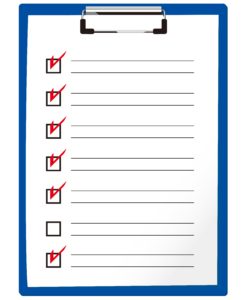
Now that we’re in the midst of the holiday shopping season, businesses and states are starting to see the effects of the Wayfair online sales tax decision. Looking back specifically at Cyber Monday, there are a lot of fascinating results regarding how states and businesses fared. Are states projecting an accurate amount of revenue?
It’s also worth noting how the new online sales tax laws will affect small internet retailers as they struggle to comply with various states’ laws during this busy holiday shopping time. How will they fare given the new regulations?
Cyber Monday & Online Sales Tax
While about two dozen new states are now collecting taxes from internet purchases as a result of recent economic nexus (Wayfair-like) legislation, there are major states (e.g. California, Texas and New York) that have not passed online sales tax legislation. Still, some retailers are choosing to collect taxes anyway, just to be safe.
With this rise in online sales tax collection, there was some concern consumers may opt for brick-and-mortar shopping over digital storefronts. However, it doesn’t appear to be an issue for them; this year’s Cyber Monday was the biggest online shopping day in the country’s history, with consumers spending $7.9 billion on the internet.
Does this mean states can sit back and expect a windfall in revenue? Well, not necessarily.
As Opportunity Washington points out, many digital purchases were already subject to online sales tax before the Wayfair ruling as major internet retailers such as Amazon had already imposed them.
In addition, not all states with online sales tax legislation are in compliance with the Wayfair ruling. This could lead to potential lawsuits. Newsmax explains, “States are devising different plans with varying legal and procedural elements — some being rushed out before they are ready — leaving them open to lawsuits from retailers and others.”

Tax Foundation continues, “The Court strongly suggested that a law that follows what we call ‘The Wayfair checklist’ would be constitutional. States can satisfy this checklist by adopting a de minimis threshold, explicitly rejecting retroactive enforcement, and adhering to uniformity and simplification rules in the Streamlined Sales and Use Tax Agreement (SSUTA).”
11 states have adopted these provisions, making the collection of online sales tax clearly permissible. However, the other states that have enacted online sales tax and not adopted these provisions may be setting themselves up for potential lawsuits, which would directly affect the amount of revenue received from internet purchases.
- 12 states have completed 5 of the 7 provisions, giving them more authority to necessitate sales tax on internet purchases, although the legal ground isn’t completely firm.
- 20 states and the District of Columbia are missing several items on the checklist, which would provide legal uncertainty in regards to online sales tax.
- 2 states, “Have duplicative, outdated, inconsistent, and inefficient sales tax collection mechanisms that make it unlikely that any attempt to pass a South Dakota-style law would survive a legal challenge.”
Tax Foundation shares a helpful graphic of this here.
Small Internet Retailers’ Struggle with Online Sales Tax
Clearly the online sales tax is far from resolved. The uncertainty regarding online sales tax doesn’t just affect state revenue either; some small internet retailers are really struggling with compliance during this busy holiday shopping season.
The Denver Post shares an example of how these new online sales tax regulations are negatively impacting Coloradan businesses.
When all of Colorado’s 344 cities, counties and special taxing entities like RTD are layered over one another, there are 683 possible sales tax combinations in the state. That is a complex web to untangle for one- or two-person shops.
While there is a threshold for out-of-state sellers, the legislation does not make an exception for in-state sellers. Because Wayfair negated the prior physical presence standard, Colorado is taking the opportunity to require in-state sellers to collect and remit local sales tax, too.
The core of the problem is the state’s hodgepodge system of taxing entities and rates. The Department of Revenue handles collections for most cities, counties and special districts, but 73 cities and two counties do their own collections, audits and set their own rules for what is taxable and what isn’t.
Small businesses based in Colorado aren’t the only ones facing new challenges with the various internet sales tax laws enacted across the country. Retailers in states without sales tax are facing a situation completely foreign – and complicated – to them. As I explained in this blog post about states’ reactions to online sales tax, “Many need to restructure their businesses in a way to collect the taxes, but they also need to be aware of how to potentially register in multiple jurisdictions, calculate the correct amount of tax, determine the taxability of myriad products and services and then keep track of where to send the taxes collected.”
It will be interesting to see how online sales tax issues continue to come to arise during the holiday season and into 2019. Do you have questions about how these regulations or other multi-state tax issues may affect your business? Contact us today! We’re happy to answer your questions.
Miles Consulting Group, Inc. is a professional service firm in San Jose, California specializing in multi-state tax solutions. Our firm addresses state and local tax issues for our clients, including general state tax consulting, nexus reviews, tax credit and tax incentive maximization, income tax and sales/use tax planning and other special projects. To learn more, contact us today at www.MilesConsultingGroup.com.


















